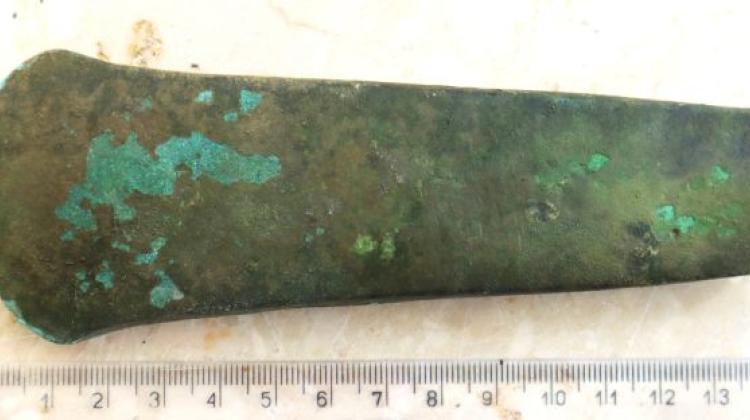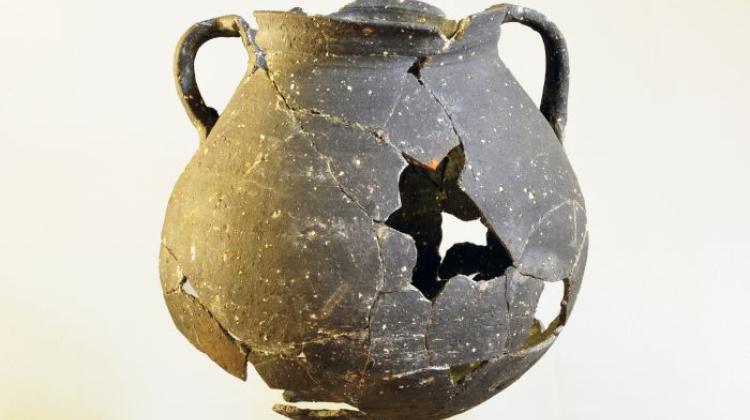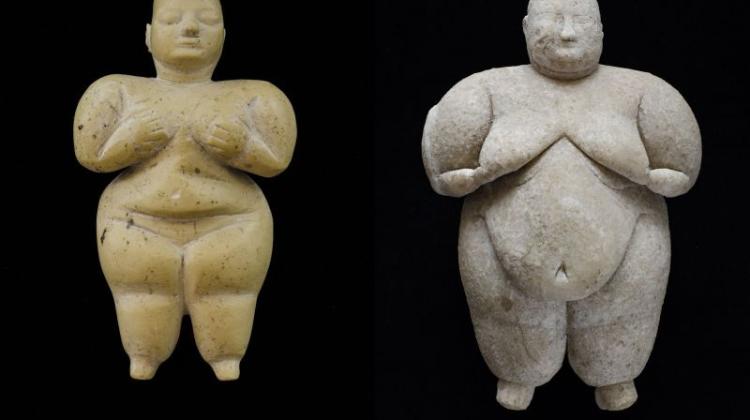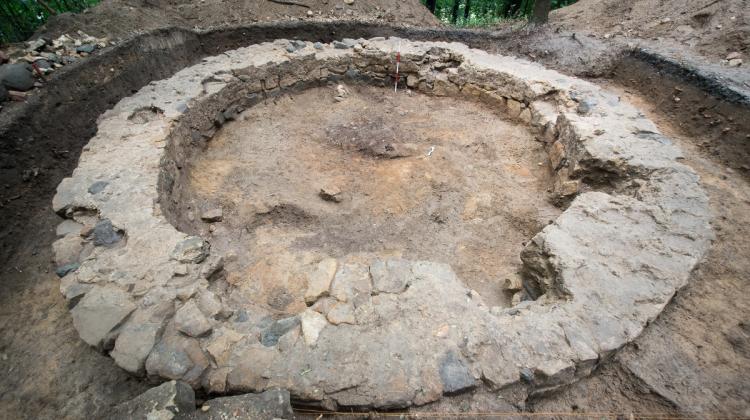Digital archaeology in Jordan
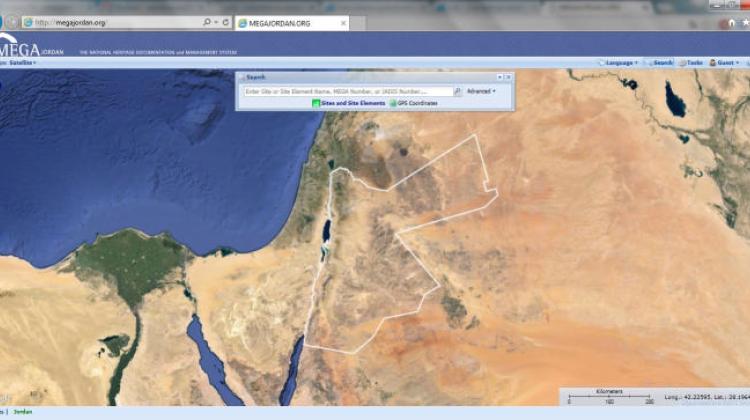 PAP © 2015 /
PAP © 2015 /
No other Arab country has such advanced and simultaneously available online to the general public, resources on archaeology, and Jordanian legislation has been addressing the issue of monuments for almost 100 years. Archaeologist Dr. Mariusz Drzewiecki looked at the issue of Jordanian heritage management during 10-month fellowship in Amman.
The scientist decided to investigate how the Jordanians perceive, protect and manage the archaeological heritage. "Before, I was involved in antiquity research projects in Egypt and Sudan, but this was my first time in Jordan, so my view outlook can be described as fresh" - Dr. Drzewiecki told PAP.
His research began with the study of the legal status of monuments. "I decided to trace the changes that have occurred in the legislation, but access was very limited. Many Jordanian archaeologists expressed the opinion that the documents were lost during the conflicts in the 2nd half of the twentieth century. Eventually I found them in the archives of the National Library in Amman" - said the archaeologist.
The first law, which protected archaeological sites is as old as Jordan. It comes from 1922, when the state was not yet an independent political entity. It is a legal act of the League of Nations, which granted Transjordan and Palestine as the League of Nations mandate for the United Kingdom. "According to my observation, the then provisions affected today\'s perception of archaeological sites. For example - under that law, every object/structure dating from before 1700 years is the archaeological heritage. In today\'s legislation, the definition has changed little - the limit date has been moved to the year 1750" - explained Dr. Drzewiecki.
Modifications in Jordanian laws relating to the monuments were reactions to important events. "The change in the law reflects the history of archaeology and reflection on the legacy of the past. This was the case when, for example, at the end of the 1950s shepherds began to sell on the free market monuments, now known as the Dead Sea Scrolls, that they were finding in caves near the Dead Sea. The reaction to this from the Jordanian government was a regulation on the award of prizes for finders valuable monuments. As a result, they would end up in the hands of scientists and not collectors" - said the archaeologist.
According to Dr. Drzewiecki, Jordanians are aware of the value and significance of the rich archaeological heritage of their country. This is the conclusions from numerous conversations with representatives of conservation services, as well as interviews made during archaeological project in Kapitolias, in which he participated as a volunteer. "In many places in Jordan people literally live in ancient ruins, also in Kapitolias. Underfunded conservation services are not able to carry out archaeological supervision in each case. An obligation to finance excavations by the investor, like in the Polish legislation, would be an appropriate solution" - believes the researcher.
This unfavorable situation contrasts with the availability of archaeological data in Jordan. There are currently four modern, digital databases that contain information about the archaeology of the region. Dr. Drzewiecki devoted a lot of time to the analysis of digital sources. Only one of them, MegaJordan, is branded by the Jordanian Antiquities Service. Others allow to browse the collection of aerial photographs and archival satellite images. In the latter, users can sort the archaeological sites by, for example, empires within which they functioned.
As part of his research,, Dr. Drzewiecki asked researchers specialising in archaeology of Jordan for an opinion on these databases. Over 100 scientists, of which 2/3 came from outside Jordan participated in an online poll. The researchers pointed to numerous weaknesses of all these tools. For example, MegaJordan contains information on only 10 thousand archaeological sites, while it is estimated that there are over ten times more in this country. This does not change the fact that archaeologists are eager to use these databases, mainly before beginning excavation projects, but note that the quality of data often does not reflects the actual situation. This includes the history of excavations and the area of the site.
"According to my respondents, online databases are important tools. Especially in the beginning, researchers use them very often. But later they go literature to find confirmation or verify the data. This clearly indicates that creators of these databases still have much work ahead of them, but the databases have the potential to become a key to managing the growing amount of information about the archaeological sites" - said Drzewiecki.
The respondents were not in agreement on unlimited access to data on the Internet is an appropriate practice. In the case of open access, there is a possibility that the data, especially concerning the location of monuments, will be used to illegally obtain objects of great historical value. Archaeologists have found that members of communities living next to the archaeological sites are the most likely to loot them and they not need to use online sources, because they know their area. Respondents noted, however, that organized international networks of robbers can take advantage of the potential of online databases.
Another important finding was that the Jordanian conservation services do not use databases in the performance of their duties - for example supervision of construction projects. According to the respondents, the technology used in databases is sufficient. The basic problem, however, is that they are not updated regularly. Ideal for respondents would be to combine all of these databases into one, comprehensive database.
Dr. Drzewiecki conducted his research as part of the EPIC Erasmus Mundus program, coordinated by the British Cardiff Metropolitan University. He worked from September 2014 until July 2015 at the Faculty of Archaeology and Tourism at the University of Jordan in Amman. The researcher’s academic supervisor was Dr. Maysoon Al-Nahar.
PAP - Science and Scholarship in Poland
szz/ agt/
tr. RL
Przed dodaniem komentarza prosimy o zapoznanie z Regulaminem forum serwisu Nauka w Polsce.


